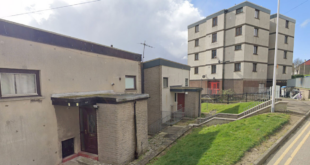There may not have been much in the Spring Budget to help the over 50s, especially those who are no longer working, but there are still financial changes afoot.
Essential bills are going up and down from the start of April, and when it comes to things like broadband, mobile contracts and even stamps, the hikes are imminent.
Sarah Coles, Head of Personal Finance at Hargreaves Lansdown, says: “April always holds bad news, because so many organisations save up their price hikes for one big, horrible hit.
“This year we don’t have the pain of energy price rises, because the price cap actually fell. However, we’ll still be hit by council tax rises, water bills [going up], TV licence fee increases and mid-contract hikes on mobile and broadband deals.”
While we’re starting to, sadly, get used to the price of things increasing regularly, if you know what to expect there are still things you can do to ensure you’re spending as little as possible.
Council tax
Councils in England have now decided how much they will raise council tax by in April – many of us have already been sent letters with the amount we’ll be paying for the year ahead.
Most councils are raising bills by the maximum amount allowed (without a referendum) of 4.99%.
It means the average Band D household will have to find a further £103 over the year. Of course, how much you’ll pay depends on which local authority area you live in.
Councils say the rises are necessary to protect vital services and help stop more local authorities from going bust.
In Wales, proposed increases vary from 5% to 13%, and between 4% and nearly 10% in domestic rates in Northern Ireland. In Scotland, council tax is frozen until next year.
While many may understand that local authorities face a funding shortfall, it’s still a bitter pill to swallow.
Sam Richardson, Deputy Editor of Which? Money, said: “As millions of households brace for a substantial surge in their council tax bills this April, with many councils set to bring in the maximum increase, making ends meet may feel more challenging than ever.
“If you are living alone, with students, providing care, or residing with individuals in specific circumstances, it’s worth checking if you are eligible for a council tax reduction.
“Similarly, in some instances, you might receive a council tax bill that seems unfair or inaccurate – for example, if you have not been given a discount that should apply. In such cases, you may have the option to appeal it and potentially secure a refund.”
If you live alone, you can get the single person discount of 25%. You won’t get this automatically – you’ll need to apply.
Coles says: “Some people are ‘disregarded’ when you’re calculating how many people are in the house. This includes under 18s and students, so check you’re not paying for anyone you shouldn’t.
“There are also discounts for those with a severe mental impairment like Alzheimer’s, certain full-time carers for people with disabilities on specific benefits and people on Pension Credit.
“The discount will depend on who lives in the house, so you may need to check whether you qualify, and how much you can save. The best place to start is the government website. ”
It’s not all bad news…
Thankfully, some measures will put money back in your wallet.
The Budget froze the 5p fuel duty cut, which should be good news for motorists. That said, many claim the price of fuel is on the up anyway and the freeze will make little difference.
Alcohol duty was also frozen, meaning the cost of heading to pubs and bars of an evening won’t be rising either.
Thanks to the triple lock commitment there will be an 8.5% uplift in the State Pension from April 2024, giving those who receive the full New State Pension an extra £17.35 a week.
Energy bills are finally set to fall in April too. The price cap – based on the usage of an average household – will fall from £1,928 a year to £1,690 on April 1.
Postage stamps
The price of postage stamps will go up by 8% on April 2, adding 10p to the price of posting a first- or second-class letter.
It will cost £1.35 to post a letter first class and 85p to send it second.
It’s the fourth rise in four years and is due to cost increases and the fact that fewer people are sending letters, according to the Royal Mail.
The price of signed-for, tracked, and special delivery services will also rise.
However, if you enjoy writing letters or never miss a birthday, there are things you can do to cut your costs.
Richardson said: “One way to beat the Royal Mail rise is to get ahead and buy stamps before April.”
If you stock up on barcoded stamps ahead of the rise, you’ll still be able to use them after prices increase. If the stamp says the postage class, rather than having a price on it, it’ll still be valid.
He adds: “Alternatively, while Royal Mail continues to be regarded as the cheapest way of sending cards, letters and small parcels weighing less than 1kg, there’s always the option to shop around and compare discount courier services such as MyParcelDelivery.”
Source link



